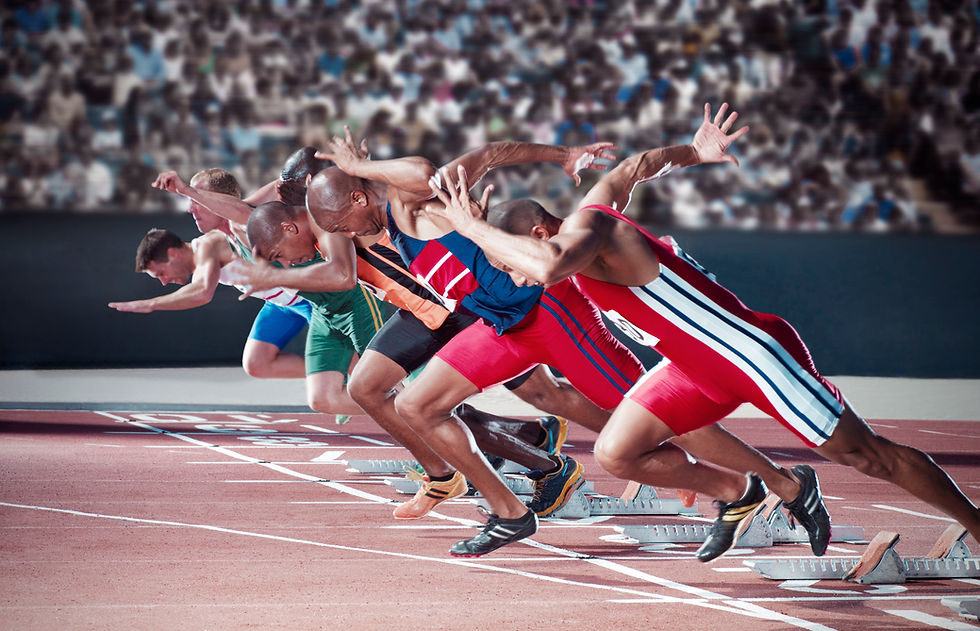Maximizing Exercise Performance
- Kristin Finley, RD/LD
- Feb 10, 2021
- 3 min read
Updated: Feb 6, 2024

When we work out, we usually want to get the most out of the work out. We want to do whatever we can to maximize the performance. This quest for excellence has spawned a multi-billion-dollar industry of nutritional supplements, sports drinks, energy drinks, and energy foods to provide the right fuel, at the right time and in the right amount.
So, do we need extra carbohydrates, extra protein, or both to increase exercise efficiency and athletic performance? If so, how much and when should we take the supplements? Many trainers and distributors of these products will tell you to take supplements and sometimes mega doses, especially weightlifters and their intake of protein. Well, let’s look at the research and get a non-biased opinion.
First, let us explain how blood sugar and exercise work. We eat carbohydrates which turn to blood sugar or glucose, our primary source of energy. This sugar is stored in the liver (liver glycogen stores) and in the muscle (muscle glycogen stores). The brain maintains blood sugar levels from what we eat and what is in storage. That is why we can skip meals occasionally and not die.
Liver glycogen maintains blood sugar levels both at rest and during exercise. Muscles require sugar or energy when we are exercising. At the beginning of exercise, liver glycogen output matches the increased muscle glucose or sugar uptake, so blood sugar or glucose levels remain near resting levels. Once exercise intensities are above 65%, muscle glycogen is the primary source of sugar to keep blood sugar levels stable and near resting. As exercise continues, the liver and muscles can no longer keep up with the demand; blood sugar levels drop and local muscular fatigue results. Athletes must reduce their exercise intensity.
It is well-established that the consumption of carbohydrates during endurance activities helps to maintain blood sugar levels when glycogen stores have been depleted. This means that the person can exercise longer and/or sprint harder at the end of exercise. Additionally, most experts agree that consumption of carbohydrates during exercise is no longer only for endurance activities. They are helpful for football, basketball, soccer, and tennis, or any other activity that require bouts of high-intensity, short-duration effort. Research has NOT supported the need for large amounts of protein to improve performance or even for choosing a sports drink with protein.
Athletes can breakdown and absorb a maximum of 1 gm of carbohydrate per kilogram of body weight per hour. Example: Gatorade (1.75 gm carb/oz.) For a 130# woman, that is approximately 34 oz. per hour. For a 180# man, that is approximately 47 oz. per hour. Review of research finds that from 30 to 60 gm of carbohydrate/hour has beneficial effects on performance in activities two hours or greater. So, even 20 oz. of Gatorade per hour can provide benefits.
But remember, we are talking endurance or high intensity activities, not just our everyday 30-60 min walk, aerobics class, or workout at the gym. Be careful, those sugar calories can add up. A 20 oz. bottle of Gatorade has 130 calories (all sugar), which is less than soda but significantly more than water. For most exercise and activity one hour or less, water is still your best bet for re-hydration and quenching thirst. But for maximizing the performance of competing or professional athletes, carbohydrate sports drinks can provide definite benefits.
Click here for our podcast!

.png)























Comments